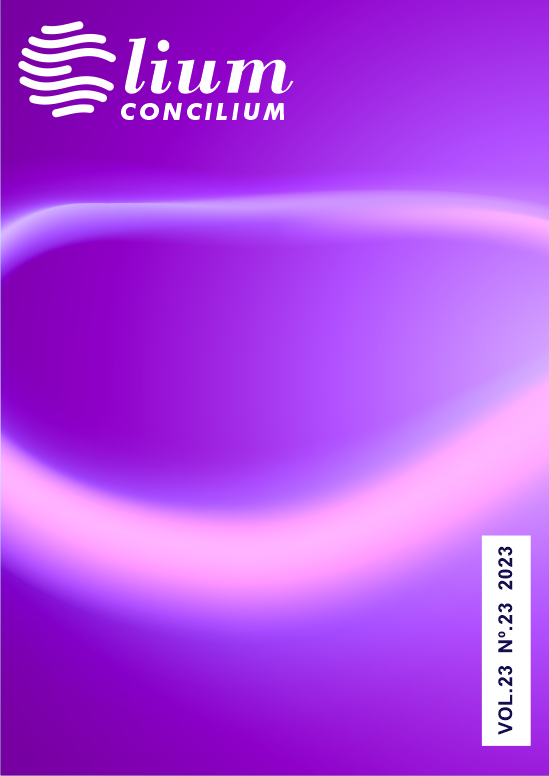Costs to health systems for antineoplastic drugs acquired through lawsuits - a systematic review
Custos para os sistemas de saúde com medicamentos antineoplásicos adquiridos em ações judiciais - uma revisão sistemática
Palavras-chave:
Antineoplastic agentes, Drug costs, Cancer, Right to health, Judicialization of healthResumo
Cancer, a rapidly increasing disease, imposes significant financial burdens on healthcare systems. This study investigates the costs incurred by health systems due to the legal processes involved in acquiring antineoplastic drugs. Conducted through a systematic literature review spanning January 2008 to March 2022, utilizing databases like Pubmed/Medline, LILACS, SciELO, and BIREME, 162 articles were initially identified. Ultimately, 15 retrospective studies were included, with a majority (53.3%) conducted in the United States. Despite implemented measures such as parity laws and financial assistance, cancer treatment costs persistently remain high. The study underscores the importance of a scientific foundation in health systems to assess the legal processes surrounding antineoplastic therapies, preventing unnecessary financial investments. To address these challenges, the study advocates for the development of public health strategies in pharmacoeconomics to democratize access to oncological treatment by reducing associated costs.
Downloads
Referências
Avellar WO, Melo AC, Silva CF, Aran V. Cancer research in Brazil: analysis of funding criteria and possible consequences. J Cancer Policy. 2019;20:100184.
Berry SR, Bell CM, Ubel PA, Evans WK, Nadler E, Strevel EL, et al. Continental divide? The attitudes of US and canadian oncologists on the costs, cost-effectiveness, and health policies associated with new cancer drugs. J Clin Oncol. 2010;28(27):4149-53.
Brasil. Ministério da Saúde, Instituto Nacional de Câncer (INCA). Gastos do SUS com cânceres que poderiam ser prevenidos com atividade física chegarão a R$ 2,5 bilhões em 2030 [Internet]. Rio de Janeiro: INCA, 2022. [cited 2023 Oct 24]. Available from: https://www.gov.br/inca/pt-br/assuntos/noticias/2022/gastos-do-sus-com-canceres-que-poderiam-ser-prevenidos-com-atividade-fisica-chegarao-a-r-2-5-bilhoes-em-2030#:~:text=Atividade%20F%C3%ADsica-,Gastos%20do%20SUS%20com%20c%C3%A2nceres%20que%20poderiam%20ser%20prevenidos%20com,2%2C5%20bilh%C3%B5es%20em%202030&text=O%20INCA%20estima%20que%20os,%2C4%20bilh%C3%B5es%2C%20em%202040
Brasil. Ministério da Saúde, Instituto Nacional de Câncer (INCA). INCA estima 704 mil casos de câncer por ano no Brasil até 2025 [Internet]. Rio de Janeiro: INCA, 2022. [cited 2023 Oct 24]. Available from: https://www.gov.br/inca/pt-br/assuntos/noticias/2022/inca-estima-704-mil-casos-de-cancer-por-ano-no-brasil-ate-2025
Brasil. Ministério da Saúde, Secretaria de Vigilância em Saúde. Plano de Ações Estratégicas para o Enfrentamento das Doenças Crônicas e Agravos não Transmissíveis no Brasil 2021-2030 [Internet]. Brasília (DF): Ministério da Saúde, 2021. [cited 2023 Oct 24]. Available from: https://www.gov.br/saude/pt-br/centrais-de-conteudo/publicacoes/svsa/doencas-cronicas-nao-transmissiveis-dcnt/09-plano-de-dant-2022_2030.pdf/view
Bray F, Ferlay J, Soerjomataram I, Siegel RL, Torre LA, Jemal A. Global cancer statistics 2018: GLOBOCAN estimates of incidence and mortality worldwide for 36 cancers in 185 countries. CA Cancer J Clin. 2018;68(6):394-424.
Chin AL, Bentley JP, Pollom EL. The impact of state parity laws on copayments for and adherence to oral endocrine therapy for breast cancer. Cancer. 2019;125(3):374-81.
Conill EM, Giovanella L, Champagne JCNF, Lira AML. Sistemas de saúde da Alemanha, Canadá e EUA em perspectiva comparada. In: Saúde coletiva: teoria e prática – 2. ed. Rio de Janeiro: Medbook; 2023.
Dusetzina SB, Huskamp HA, Winn AN, Basch E, Keating NL. Out-of-pocket and health care spending changes for patients using orally administered anticancer therapy after adoption of state parity laws. JAMA Oncol. 2018; 4(6):e173598.
Dusetzina SB, Keating NL. Mind the gap: why closing the doughnut hole is insufficient for increasing medicare beneficiary access to oral chemotherapy. J Clin Oncol. 2016;34(4):375-80.
Francisco PMSB, Friestino JKO, Ferraz RO, Bacurau AGM, Stopa SR, Filho DCM. Prevalência de diagnóstico e tipos de câncer em idosos: dados da pesquisa nacional de saúde 2013. Rev Bras Geriatr Gerontol. 2020;23(2):e200023.
Gomes HMS, Nascimento JCHB, Sousa ARC, Almeida ANM. Gastos do sistema público de saúde com tratamento em oncologia. Rev Adm Hosp Inov Saúde. 2021;18(2):74-89.
Guan X, Wushouer H, Yang M, Han S, Shi L, Ross-Degnan D, et al. Influence of government price regulation and deregulation on the price of antineoplastic medications in China: a controlled interrupted time series study. BMJ Open. 2019;9(11):e031658.
Hornbrook MC, Malin J, Weeks JC, Makgoeng SB, Keating NL, Potosky AL. Did changes in drug reimbursement after the medicare modernization act affect chemotherapy prescribing? J Clin Oncol. 2014;32(36):4042–49.
Lobato LVC, Giovanella L. Sistemas de saúde: origens, componentes e dinâmica. In: Políticas e sistema de saúde no Brasil - 2.ed. Rio de Janeiro: Fiocruz; 2012. p. 89-101.
Lopes LC, Barberato-Filho S, Costa AC, Osorio-de-Castro CGS. Rational use of anticancer drugs and patient lawsuits in the state of São Paulo, southeastern Brazil. Rev Saude Publica. 2010;44(4):620-28.
Moher D, Shamseer L, Clarke M, Ghersi D, Liberati A, Petticrew M, et al. Preferred reporting items for systematic review and meta-analysis protocols (PRISMA-P) 2015 statement. Syst Rev. 2015;4(1):1-9.
Niraula S, Nugent Z. New cancer drug approvals from the perspective of a universal healthcare system: analyses of the pan-canadian oncology drug review recommendations. J Natl Compr Canc Netw. 2018;16(12):1460-66.
Observatório de Oncologia. 30 anos de SUS saúde no Brasil e a evolução do tratamento do câncer [Internet], 2018. [cited 2023 Oct 24]. Available from: <http://observatoriodeoncologia.com.br/outros_estudos/IQVIA.pdf>
Rizerio H. Bismarck e Beveridge: Modelos previdenciários e fundamentos [Internet], 2016. [cited 2023 Oct 24]. Available from: https://www.jusbrasil.com.br/artigos/bismarck-e-beveridge/354368360
Serapioni M, Tesser CD. O sistema de saúde brasileiro ante a tipologia internacional: uma discussão prospectiva e inevitável. Saúde Debate. 2019;43(5):44-57.
Souza LEPF, Bahia L. Componentes de um sistema de serviços de saúde – população, infraestrutura, organização, prestação de serviços, financiamento e gestão. In: Saúde coletiva: teoria e prática – 2. ed. Rio de Janeiro: Medbook; 2023.
Stanz L, Ulbrich T, Yucebay F, Kennerly-Shah J. Development and implementation of an oral oncology drug repository program. JCO Oncol Pract. 2021;17(3):e426-e432.
Vargas V, Leopold C, Castillo-Riquelme M, Darrow JJ. Expanding coverage of oncology drugs in an aging, upper-middle-income country: analyses of public and private expenditures in Chile. J Glob Oncol. 2019;5:1-17.
Vokinger KN, Hwang TJ, Grischott T, Reichert S, Tibau A, Rosemann T, et al. Prices and clinical benefit of cancer drugs in the USA and Europe: a cost–benefit analysis. Lancet Oncol. 2020;21(5):664-70.
Vokinger KN, Muehlematter UJ. Accessibility of cancer drugs in Switzerland: time from approval to pricing decision between 2009 and 2018. Health Policy. 2020;124(3):261-67.
Wong CKH, Lam CLK, Poon JTC, McGhee SM, Law WL, Kwong DLW, et al. Direct medical costs of care for chinese patients with colorectal neoplasia: a health care service provider perspective. J Eval Clin Pract. 2012;18(6):1203-10.



